Business
Frequently Asked Questions
Registering for GST is compulsory:
- when your business turnover (net of GST) is $75,000 (the GST threshold) or more.
- when you start a new business and expect your turnover to reach the GST threshold in the first year of operation.
- if you’re already in business and have reached the GST threshold.
- if your non-profit organisation has a GST turnover of $150,000 per year or more.
- when you provide taxi or limousine travel for passengers (including ride-sourcing) regardless of your GST turnover – this applies to both owner-drivers and if you lease or rent a taxi.
- if you want to claim fuel tax credits for your business or enterprise.
Registering for GST is optional if your business or enterprise doesn’t fit into one of these categories. If you choose to register, generally you must stay registered for at least 12 months.
It may be beneficial for you to voluntarily register for GST. Contact us to discuss.
You are not permitted to trade under a different name other than your own legal name unless you apply and register a Business Name. A business name can be applied for through the Australian Securities and Investments Commission (ASIC). Registration currently costs $39 for one year and $92 for three years and is payable to ASIC.
If you require assistance with your application, please get in touch.
- Sole Trader (Individual);
- Partnership;
- Company;
- Trust;
- Other; and
- A combination of the above.
- Taxation and legal implications;
- Employment of talent;
- Attracting business partners and investors;
- Selling your business in the future;
- Employing associated people;
- Obtaining finance;
- Restructuring in the future;
- Closing down the business; and
- Obtaining industry registrations (eg QBCC).
If your business is registered for GST or you employee staff, you will be required to report your business activity to the Australian Taxation Office (ATO) likely each quarter. Business activity may include one or all of the following:
- Gross revenue;
- GST collected from gross revenue (payable to ATO);
- GST paid on business expenses (refundable by ATO);
- Wages paid to employees (if applicable);
- Tax withheld from employee wages (payable to ATO);
- Provisional income tax (payable to ATO); and
- other obligations;
Once you have completed and lodged your BAS, you will have to pay the ATO the difference between the amounts payable and the amounts refundable. If the amounts refundable exceed the amounts payable, then you will receive a refund.
You do not need to use a tax agent (or accountant) to prepare and lodge your BAS, however, we do recommend you obtain professional advice on how to prepare your BAS properly.
Refer to our key dates section to find out when your Activity Statement is due for lodgement.
Strictly speaking, you do not need accounting software to record your business income expenses. You may choose to use a spreadsheet only. As your business expands, you will likely out grow the spreadsheet and require the use of accounting software. You may also find that the fees you pay an accountant to prepare your tax return and other statutory reports will be higher if you use a spreadsheet. This of course will depend on the age of your business and the amount of transactions you have.
We are experts in helping our business clients get the most out of their chosen method of record keeping.
if you employ workers in your business, you will require the use of compliant software to report payments to the ATO each pay period. This is know as Single Touch Payroll (or STP).
For those businesses in the early stages, we will provides you with several templates to get you started, including bookkeeping and invoicing.
Please contact us to discuss your specific needs.


